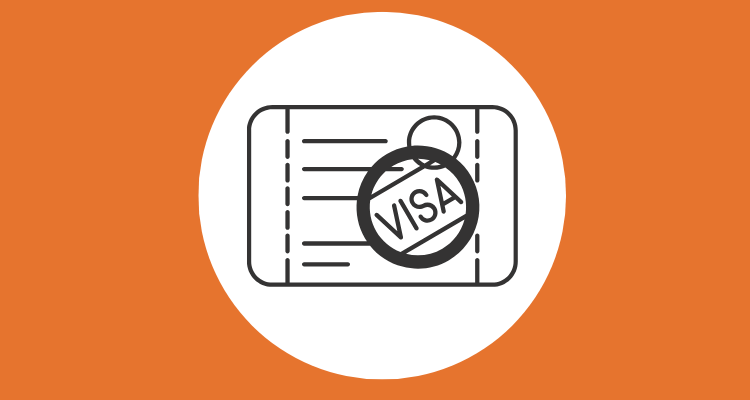Applying for a Spanish digital nomad visa has become a popular way for many professional Brits to be able to move to Spain. As part of the process, applicants must gather, legalise and translate a series of documents.
This article provides a general overview of the application process and the documents required, and explains how to organise sworn translations for Spanish digital nomad visa applications.
Contents
Applying for a Spanish digital nomad visa
What is a Spanish digital nomad visa?
I personally find that calling this type of visa ‘digital nomad visa’ is slightly inaccurate. The official name is visado de residencia para teletrabajo (nómada digital) or ‘residence visa for remote workers (digital nomad)’. But a remote worker is not entirely the same as a digital nomad: while a remote worker has a permanent base, a digital nomad involves working remotely while travelling.
A Spanish digital nomad visa is for professionals who either
- work remotely for companies based outside Spain only; or
- work as self-employed mostly for companies based outside Spain (the volume of work for companies based in Spain must not exceed 20%).
Digital nomad visa applications can also be made by the spouse, civil partner, minor and economically-dependent children, and dependent parents of the remote worker.
Validity
A Spanish digital nomad visa is valid for one year, or for the same (shorter) period than the residence permit granted.
How and when to apply for a Spanish digital nomad visa?
Applications for Spanish digital nomad visas must be done by the applicant, either personally or through an accredited representative.
The Spanish Ministry of Foreign Affairs, European Union and Cooperation has externalised the visa application service to BLS International. The application form and all the supporting documentation must be submitted to the BLS Spain Visa Application Centre associated with your Spanish consular jurisdiction – London, Edinburgh, or Manchester. Your consular jurisdiction is determined by where you live in the UK.
Documents required for Spanish digital nomad visa applications
General documents for all applicants
This applies to the main applicant (the remote worker), as well as their family members
- National visa application form.
- A photograph.
- Your passport and a copy of the biometric data page(s).
- Criminal record certificate (ACRO Certificate).
- Proof of residence within the consular jurisdiction.
- Proof of payment of visa fee (to be paid by cash or card at the consular appointment).
- Health insurance certificate (original and a copy thereof).
Documents for the main applicant (the remote worker)
- Company certificate: from the employer (if an employee) or from the applicant (as self-employed).
- Companies House certificate.
- Statement from the employer or the applicant as self-employed.
- For employees: proof of the UK employer’s registration on the Spanish national insurance system and proof the employee’s enrolment on the system. Not required if submitting a certificate from HMRC confirming that the applicant will continue paying UK National Insurance while in Spain.
- For self-employed: proof of enrolment on the RETA self-employment system.
- Evidence of sufficient financial means.
- Documents evidencing level of education or at least three years of professional experience.
Documents for the applicant’s family members
- Certificates proving kinship with the applicant.
- Proof confirming the economic dependency and marital status of children.
- Proof of parents being dependants of the applicant.
The above list is for general informational purposes only. Always read the latest information available on your nearest Spanish Consulate’s website and the corresponding BLS centre’s website to confirm all the details about each document regarding validity, originals/copies, number and type of copies, size of photographs and any other specific requirement.
Things to bear in mind:
- Criminal record certificate: you must request an ACRO Certificate. DBS are not accepted for visa purposes.
- When applying for a digital nomad visa, you also need to apply for a Spanish Foreigner’s Identity Number (NIE).
- The list of documents required is non-exclusive. The consular office may request additional documents, so make sure you check the latest available information before proceeding with your application.
- All foreign documents (e.g. UK documents) must be (1) legalised/apostilled and (2) translated into Spanish by a sworn translator.
How to arrange legalisations/Apostilles
Legalisation/Apostille is required for documents to take effect abroad (e.g. UK documents to be submitted to Spanish authorities). You can arrange Apostilles online directly with the Legalisation Office. Alternatively, you can hire the services of a visa support agency or, if you need support with your visa application, you can engage a local firm of solicitors or a Notary Public to help you arrange Apostilles for you, too.
Sworn translations for Spanish study visa applications
About Spanish sworn translations
Sworn translations are certified by a sworn translator who has been duly appointed as such by the Spanish Ministry of Foreign Affairs. This type of translation is required in official procedures such as applying for a Spanish digital nomad visa. For more information, visit my blog, where I provide clear answers to Spanish sworn translations FAQs.
The role of sworn translations
Sworn translations are supporting documents. They do not replace your original UK-issued documents. When you apply for a Spanish digital nomad visa, you must always take with you the original documents + sworn translations.
Documents requiring sworn translation
All foreign documents (e.g. UK documents) issued in a language other than Spanish must be translated by a sworn translator, unless an exception applies to your particular circumstances. If in doubt, please double-check with your nearest Spanish consular office.
When to request your Spanish sworn translations
As mentioned above, your foreign documents must be (1) legalised/apostilled and (2) translated as part of your Spanish digital nomad visa application. Since Apostilles come in a multilingual format, they do not need to (but can) be included in translations. Make sure that you have all original documents apostilled and all sworn translations ready when booking your consular appointment.
How to arrange sworn translations for your Spanish digital nomad visa application
As a Spanish sworn translator myself, I will be happy to help with any translations you need as part of your digital nomad visa application process. Once you have gathered all documents requiring translation, get in touch and send full scanned copies by email to receive a formal quotation.
Other types of Spanish visa applications:
DISCLAIMER
The information included in this article is correct at the time of publication/last update. This article is for informational purposes only, does not constitute legal advice and should not be relied upon as such. Any reliance you place on such information is strictly at your own risk. ICR Translations will not be liable for any loss or damage arising from loss of data or profits as a result of, or in connection with, the use of this website.

Irene Corchado Resmella, a Spanish translator based in Edinburgh. English-Spanish sworn translator appointed by the Spanish Ministry of Foreign Affairs, Chartered Linguist and member of the CIOL. As a legal translator, I focus on Private Client law, specialising in Wills and Succession across three jurisdictions (England & Wales, Spain, and Scotland). Affiliate member of STEP. ICR Translations is registered with the ICO and has professional indemnity insurance.

